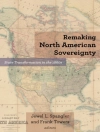This fascinating and highly useful book examines the rise of the British empire and the various debates among historians of imperialism over the past two hundred years. It discusses why the empire is so attractive to historians, why there is so much debate and controversy surrounding the subject, and how different generations of historians have read the various episodes in the history of the empire often radically differently.
Chapters look at the enduring fascination with the empire among historians; early twentieth century economic explanations for the dynamic expansion of the empire in the Victorian period; the controversies surrounding empire in the 1950s; post colonial theory and its critics; religion, race, gender and class; and debates on capitalism and the empire since the 1980. The final chapter investigates how Britain’s imperial history might be viewed in years to come.
An engaging and useful work of historiography, this book will be essential reading for students of British imperialism attempting to get to grips with the subject.
Table des matières
1. The British Empire: an enduring fascination
2. Justifying British imperialism: the changing rationale of the empire builders
3. Capitalism’s critics and defenders: early twentieth century economic explanations of Victorian British imperial expansion
4. Metropole, periphery and informal empire: the Gallagher and Robinson controversy of the 1950s and after
5. Cultural explanations of British imperialism I: post colonial theory and its critics
6. Cultural explanations of British imperialism II: religion, race, gender and class
7. The metropole strikes back: the new debate about gentlemanly capitalism and empire 1980-2004
8. The future of Britain’s imperial history?
Further reading
A propos de l’auteur
Anthony Webster is Head of History at Edge Hill College of Higher Education












